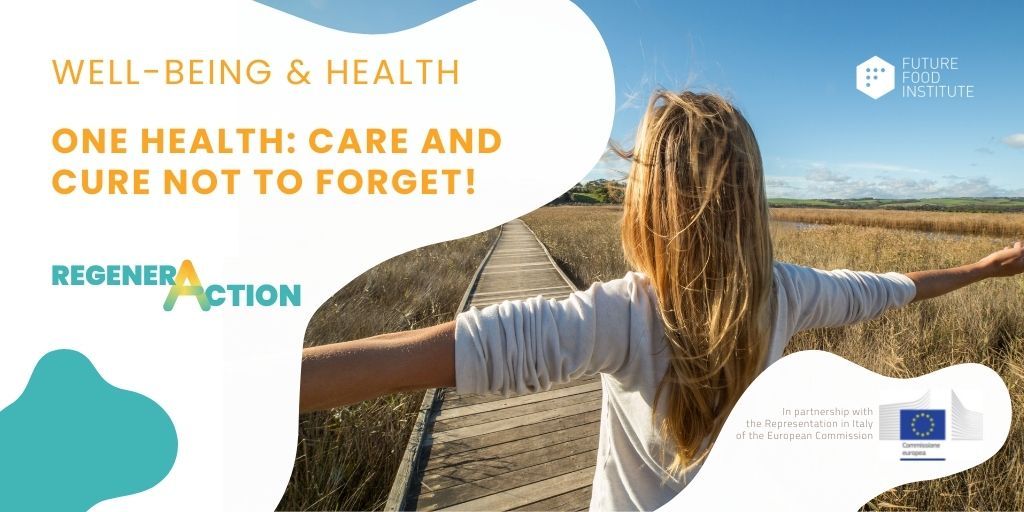The Challenge towards collective well-being
📢 No matter what creed we hold, what culture we embrace, or what part of the world we live in, we all share a life, and the common desire of every individual on Earth is to make the most of it.
Between living and surviving there is a huge difference punctuated by so many factors, including, for example, quality of life, which can be identified in the quality of food, air, nutrition, welfare services, but also the health of the environment around us, both natural and social. But even more important to truly living is the development of the inner aspects – the aspects of our soul. Living in harmony with ourselves, preserving our mental well-being, and being happy and fulfilled should not just be moments, they cannot be neglected. We must turn the well-being of our mind and body into our daily goal. Let us take care of ourselves so that we can take care of our surroundings more consciously.
Why it matters: increasing resilience by fostering physical and mental equilibria
❗The link between mind and body is something that has been theorized and recognized for a long time: “mens sana in corpore sano,” said the Roman poet Juvenal in his Satire from the second century AD. An awareness that over time we have lost, or forgotten, in the pursuit of homologation to today’s society, the performance society. We suffer now, in fact, from a constant frenzy, a famine of time, and this leads us to change our lifestyle, no longer devoting ourselves, but putting ourselves at the bottom of the “to-do list.”
The problems or solutions we find are mainly in the way we eat or move. We no longer savor what we are eating because we do not give it enough value and we no longer have the time to devote to our bodies, even if only by taking a walk. Everything steals our time because the complexity of society is increasing: everything is interconnected. And that’s why we now have a multidimensional conception of health as a condition of “bio-psycho-social well-being.” Now, more than ever, we are realizing the importance of actually connecting the dots, looking for ways to address mental and physical problems taking into account how interconnected they are, thus making interdisciplinary approaches necessary.
The EU Strategy: One Health Approach
🇪🇺 The Institute for European Environmental Policy together with the European Commission has been exploring evidence of the positive effects of nature on people (mental health, stress reduction, etc.) and the importance of contact with it since 2016.
Nature has restorative and stress-reducing effects, and even a short break from work in a green area can be positive. This knowledge should be used in planning work and living environments. For example, green areas in and around work environments, if actively used, would help individuals’ mental and physical recovery. From the scientific evidence and practical experience that has been discussed by projects throughout Europe, several recommendations can be derived. Because the field is multidisciplinary, there are always challenges to promoting understanding of the benefits of nature for health and well-being through media and community projects that increase public awareness. Indeed, governance structures at a broader level need to encourage transdisciplinary programs that focus on the benefits of nature and wellness and that contain a strong practical dimension. At the same time, local governments are responsible for providing adequate facilities, health, and social care services.
Evidence from the research also conducted by the Institute for European Environmental Policy shows that nature stimulates people to be more physically active. We are used to associating physical activity only with energy expenditure and being physically fit. There are, however, other positive effects of exercising in nature, such as positive emotions from being in nature itself, supportive relationships with the community, stress reduction, improved mental health, and aesthetic experiences, which are less discussed consequences of physical activity-related research.
RegenerAction and the potential of the Mediterranean way of living
🌱 Future Food Institute has decided to convey the importance of well-being to all those it addresses and interacts with. One of its most important projects takes place in Pollica, which is part of the international Cittaslow (Slow Cities) movement, the “Cities of Good Living,” founded in 1999 and inspired by the principles of Slow Food.
Slow living tends to recreate a new humanism of being and living in places. The Municipality of Pollica joins the Slow Cities network with its name as the cradle of the Mediterranean Diet. It is precisely the latter, which has now become the heart of Future Food Mediterraneo, that is one of the main tools for putting into practice the well-being, mental, and physical health we outlined above.
The Mediterranean Model teaches us from its ancient origins that the only way humanity can prosper is through the achievement of collective well-being. Today we call it Prosperity Thinking, that is, sustainable forms of design that put nature and human needs at the center. In ancient times, it was a more naturalistic mindset that allowed people and the planet to thrive together: through trust, generosity, diversity, and equality. The method adopted by Future Food is thus reinstating the ancient mindset, which has been refined over several years and recently published in academic articles.
👉 Follow us on Twitter!
#RegenerAction2022 #EUAgrifoodWeek2022

